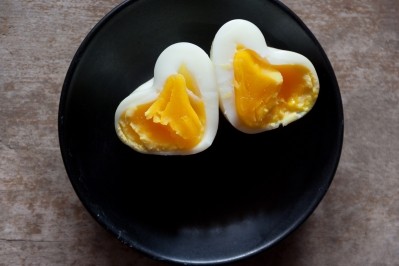Palmitoylethanolamide a viable, non-toxic alternative to cannabidiols, say scientists

The authors point to PEA’s more robust safety profile when consumed orally and solid regulatory approval, compared to cannabidiol (CBD), which they say suffers from insufficient safety data, an ambiguous regulatory status and human safety profile.
Commissioned by Gencor Pacific, a Hong Kong-based company that uses PEA for sleep aid supplements as well as joint health and sports recovery, the study comments, "Endogenous endocannabinoid-like compounds such as PEA target similar pathways to cannabinoids, but without the abuse risk and legal ambiguity surrounding phytocannabinoid usage.
“At this time PEA’s safety, tolerability, consistency, and regulatory profile confer certain advantages.”
What is PEA?
Palmitoylethanolamide (PEA) is a naturally occurring fatty acid with similar protective qualities to CBD, which is widely acclaimed for its analgesic, neuroprotective, anxiolytic, anticonvulsant, and antipsychotic qualities.
CBD is also integral to the body’s regulatory endocannabinoid system (ECS) that modulates numerous functions, including sleep, appetite, exercise, pain, mood, and memory. It is a major constituent of cannabis but, unlike tetrahydrocannabinol (THC), does not cause a euphoric high; it is also one of the most extensively studied phytocannabinoids.
Rules on the commercial availability of CBD are, however, unclear due to its close affiliation with THC. In addition, adverse effects of CBD have been documented in animals and humans.
In many ways, the therapeutic actions of CBD and PEA overlap in their biochemical roles in humans, although Endogenous Cannabinoids (EC) are ubiquitous in the body and have broader therapeutic potential in multiple pathological states.
“Endogenous endocannabinoid-like compounds such as PEA target similar pathways to cannabinoids, but without the abuse risk and legal ambiguity surrounding phytocannabinoid usage.
“As a result, identifying alternative endocannabinoid system (ECS) modulators is significant in the scientific community.”
Benefits of PEA
PEA is found in all cells, tissues, and fluids, including the brain, and is found in soybean lecithin and egg yolk. Levels are altered in pathological states, suggesting its protective role.
The authors explain: “During chronic inflammation, tissue levels of endogenous PEA decrease due to reduced production and increased degradation and are therefore inadequate to restore homeostasis. Several exogenous PEA formulations have therefore been developed.”
Pre-clinical and clinical studies have established PEA’s protective actions in multiple therapeutic areas including pain states, eczema, influenza and common cold, psychopathologies, neurodegenerative disorders, and muscle damage.
Recent reviews also note the efficacy of PEA in depression, pain management, and neuro-inflammatory conditions.
There are no reported ill-effects from drug interactions or adverse reactions to supplementation, probably due to PEA being an endogenous compound and a natural component of the human diet, the authors note.
“In contrast with a number of pre-clinical reports of CBD-induced reproductive and developmental toxicity, the screening of PEA in multi-generational models has not yet found similar problems.”
They add that further investigation into both compounds is necessary, specifically regarding definitive bioavailability and volume of distribution, and safety and efficacy when used long-term in diseased and healthy populations.
Source: Journal of Dietary Supplements
Published online: doi.org/10.1080/19390211.2021.2005733
‘Palmitoylethanolamide: A Potential Alternative to Cannabidiol’
Paul Clayton, Silma Subah, Ruchitha Venkatesh, Mariko Hill & Nathasha Bogoda















